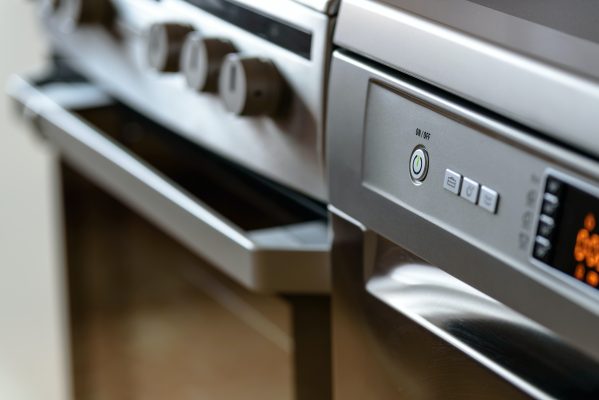Maintaining a clean commercial kitchen is essential to running a healthy and thriving business, as kitchens can become home to a variety of dangerous contaminants if they aren’t given the proper attention. With that said, continuously cleaning and disinfecting will help prevent your employees and customers from falling ill. You may already have a cleaning and disinfecting routine in place for your kitchen, but it never hurts to continue your research and add to your task list. If you’re looking for some extra cleaning tips to bring your kitchen to its best possible shape, consider adding these unique cleaning practices to your routine.
Commercial Kitchen Janitorial: Trash cans
Everyone knows that trash bags need to be disposed of on a regular basis to control the smell and mitigate the spread of any bacteria growing inside. What some may not know is that the actual trash can needs to be cleaned out often as well. There are multiple ways for trash to find its way outside of the liner and to the bottom of the trash can. Whether there’s a hole in the liner or the bag wasn’t secured around the outside and has fallen in – ultimately it can lead to a dirty and stinky trash can. When you’re taking out the trash at the end of the day, wash the inside of the trash can before putting in a new liner.
Commercial Kitchen Janitorial: Knobs and handles
With being such a small detail, and something that isn’t actually used to prepare food, knobs and handles all too often get overlooked during cleaning. Everything from the door knobs, sink handles, oven knobs, microwave buttons, and cabinet handles should be getting disinfected daily. With the number of times they’re being touched every day, and by the number of people, handles and knobs can hold different bacteria that can easily lead to the spread of bacteria and illness. At the end of the day, it’s recommended you wipe down and sanitize all knobs and handles throughout the kitchen to help decrease potentially dangerous contaminants.
Commercial Kitchen Janitorial: Ice maker
Since ice is considered food according to the FDA, you’ll need to treat it like any other piece of cooking equipment you use in your commercial kitchen. Unfortunately, this doesn’t always make the cleaning list. In order to avoid build up of slime and mold, it’s recommended you clean and disinfect the entirety of your ice machine monthly.
Commercial Kitchen Janitorial: Refrigerator coils
Considering this is something that isn’t very noticeable, it doesn’t get done as often as it should. Fortunately, the coils only get dusty – so cleaning only needs to be done about twice a year and it isn’t a timely task. Cleaning the coils will actually help your refrigerator system last longer and maximize the cooling efficiency, which protects your investment in the equipment, as well as in the food it’s storing.
Even if you have a well established commercial kitchen cleaning routine in place, there’s always room for improvement. Luckily, the majority of cleaning needs are pretty obvious, but there are definitely some smaller details that can be missed. By following your current routine and adding in these essential tips, you can ensure that you’re creating a safe environment for your employees and patrons.

